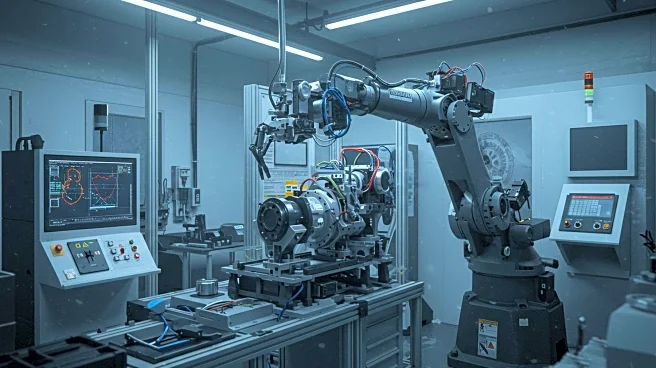What's Happening?
The United States is experiencing a resurgence in manufacturing, driven by investments in industries such as semiconductors and automotives, alongside efforts to shorten global supply chains. However, this growth is threatened by a significant skills gap, with The Manufacturing Institute estimating a need to fill four million manufacturing jobs by 2030, half of which may remain unfilled due to a lack of trained workers. Buffalo's Northland Workforce Training Center (NWTC) presents a scalable solution, aligning training programs with industry needs and collaborating with local companies like Motivair, Tesla, and Moog to shape curricula and facilitate job placements.
Why It's Important?
The skills gap in U.S. manufacturing poses a challenge to sustaining industrial growth and economic development. Addressing this gap is crucial for maintaining competitiveness in global markets and ensuring the success of reshoring efforts. Buffalo's model demonstrates the importance of industry collaboration and educational partnerships in creating a skilled workforce. By providing accessible pathways and support services, such as transportation and childcare, NWTC enhances workforce participation and economic mobility, contributing significantly to the local economy and setting a precedent for other regions.
What's Next?
As domestic manufacturing continues to grow, particularly in sectors like semiconductors, there is a pressing need for investment in workforce training. Buffalo's collaborative approach offers a blueprint for other regions to follow, emphasizing community-rooted training and industry-aligned skills development. The success of such programs will be pivotal in bridging the skills gap and driving industrial growth, with potential expansions and adaptations of Buffalo's model likely to be explored across the country.
Beyond the Headlines
The resurgence in manufacturing and the associated skills gap highlight broader economic and social implications, including the need for inclusive workforce development strategies that engage nontraditional candidates. Buffalo's model underscores the importance of wraparound support services in achieving higher graduation rates and job placements, which can lead to increased economic impact and social mobility. This approach may influence future policy decisions and workforce development initiatives nationwide.









